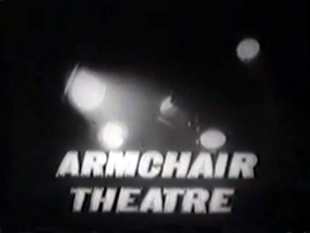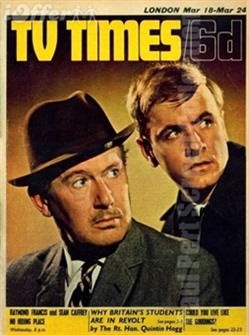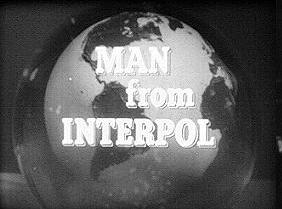
Alan John Clarke was an English television and film director, producer and writer.

Armchair Theatre is a British television drama anthology series of single plays that ran on the ITV network from 1956 to 1974. It was originally produced by ABC Weekend TV. Its successor Thames Television took over from mid-1968.
John Middleton Lankester Paul was an English actor. He is best known for his television roles, particularly as Dr Spencer Quist in Doomwatch (1970–1972) and Marcus Agrippa in I, Claudius (1976), both for BBC Television.

Peter Jeffrey was an English actor. Starting his performing career on stage, he later portrayed many roles in television and film.
Stuart McGugan is a Scottish actor and television presenter.
John Woodvine is an English actor who has appeared in more than 70 theatre productions, as well as a similar number of television and film roles.

Glyndwr Desmond Houston was a Welsh actor best known for his television work. He was the younger brother of film actor Donald Houston.

Special Branch is a British television series made by Thames Television for ITV and shown between 1969-1970 and 1973-1974. A police drama series, the action was centred on members of the Special Branch counterintelligence and counterterrorism department of the London Metropolitan Police. The first two series starred Derren Nesbitt, before the programme went through an overhaul, with George Sewell taking over as the new lead.

John Harvey was an English actor. He appeared in 52 films, two television films and made 70 television guest appearances between 1948 and 1979.

David William Frederick Lodge was an English actor.

No Hiding Place is a British television series that was produced at Wembley Studios by Associated-Rediffusion for the ITV network between 16 September 1959 and 22 June 1967.
Target was a British police action drama series, which ran from 1977 to 1978, on BBC1. Set in Southampton, it starred Patrick Mower as Det. Supt. Steve Hackett, Brendan Price as Det. Sgt. Frank Bonney, Vivien Heilbron as Det. Sgt. Louise Colbert and Philip Madoc as Det. Chief Supt. Tate. Seventeen fifty-minute episodes were produced and the theme music was by Dudley Simpson. It was the BBC's response to ITV's successful series The Sweeney, but received criticism for its levels of violence and only lasted two seasons.

Bill Dean was a British actor who was born in Everton, Liverpool, Lancashire. He took his stage name in honour of Everton football legend William 'Dixie' Dean.

Robert Raglan was a British actor best known for his semi-regular role in Dad's Army as Colonel Pritchard. He also starred in a number of other television series and films such as Fabian of the Yard (1954–56) and The Haunted House of Horror (1969). He also appeared in Danger Man with Patrick McGoohan, and Scotland Yard.

Wensley Ivan William Frederick Pithey was a South African character actor who had a long stage and film career in Britain.

John Barrie was an English actor who appeared in a number of television shows and films. He became well known for playing the title character on the police series Sergeant Cork from 1963–1968 and playing Detective Inspector Hudson on Z-Cars from 1967–1968. He was born in New Brighton, Cheshire in 1917 and made his screen debut in the 1954 film Yankee Pasha. He retired from acting in the 1970s, and latterly owned a number of grocery shops around York.

Man from Interpol is a 1960 TV series produced by The Danzigers. The NBC series was filmed in England and the music was scored by jazz musician Tony Crombie.

Waterfront Beat is a BBC television police procedural drama series, broadcast between 6 January 1990 and 20 February 1991. The series follows the work of a group of police detectives stationed in the Liverpool docks. The series was created by writer Phil Redmond, famed for his work on Channel 4 soap Brookside. The series was highly regarded as the BBC's first attempt to rival The Bill, following a similar weekly format to the ITV counterpart. A total of sixteen episodes were broadcast over the course of two series. The programme featured a large ensemble cast, with John Ashton, Rupert Frazer, Geoffrey Leesley, Denis Lill and Brian McCardie leading the cast throughout both series.
Deep and Crisp and Stolen is a 1964 British television play by Dave Freeman directed by Ronald Marriott. It was a Christmas season "special" featuring many cameos from British television stars of the time and aired on 21 December 1964.














